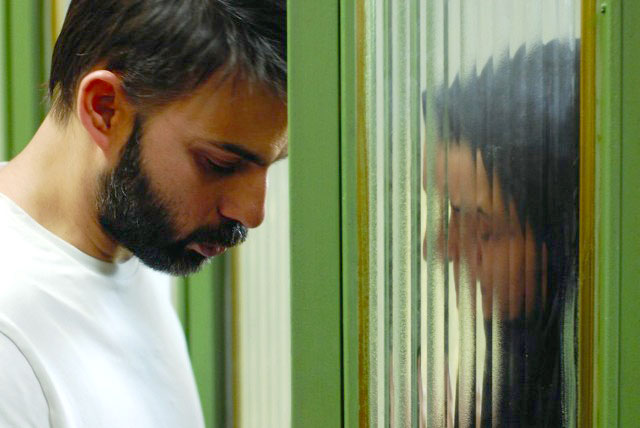At the opening of Asghar Farhadi’s “A Separation,” the two central characters, husband and wife, sit facing a judge in a small Iranian courtroom no bigger than their home bedroom. The wife, Simin (Leila Hatami), is eager to escape Iran’s suffocating policies and take her teenage daughter Termeh (Sarina Farhadi) with her, presumably to Europe or perhaps America, anywhere but Iran. Simin is an educated woman with a good job, who sees no future for herself or her daughter in her native country.
Her husband, Nader (Peyman Moadi), loves her and his daughter, but refuses to abandon his father, who lives with them and is an almost incapacitated invalid near the end of a long struggle with Alzheimers.
Simin appears to believe that as Nader refuses to leave, a divorce is the only answer. He grudgingly agrees to comply, but won’t give up the daughter. Simin packs up and moves in with her family across town in the first leg of her plan to leave. The daughter, on the edge of critical exams, stays with her father.
Now Nader, a bank clerk, must hire someone to watch over his father. He hires a devout Muslim woman, Razieh (Sareh Bayat), who is forced to seek work because her own husband is an unemployed troublemaker. Trouble billows up immediately when the father wets himself and Razieh is forced to change and wash him, an act forbidden to her by her faith. She actually has to call a religious hotline, to seek an answer.
Problems with the arrangement begin to multiply when two separate incidents occur. The father wanders off, and Razieh pursues him. Something happens here that is revealed only at the end of the film. Then money is missing. It is never explained who took it, but Nader suspects this new housekeeper and evicts her forcefully from his home. She later suffers a miscarriage. Nader seems not to have known she was pregnant, but the law is clear. If he caused the miscarriage by his actions, he is guilty of murder. Enter Sharia law.
Now all are set loose in the bizarre convoluted Iranian judicial system that is intertwined, not only with basic family problems, but with the cultural complexities of the oppressive religious world that hangs about the film and the family like a suffocating shroud. In a sense, the story is a mystery that offers few solutions. Who took the money, an act that started the wheels rolling? We never find out. Why did the housekeeper tie the father to his bed, an act that resulted in his injury? She claimed she had an appointment. But with whom and where? That is revealed at the film’s end, and opens yet another door to another room full of religious and political tunnels.
Farhadi knows his country and his people and his actors. It’s clear that his work must have been severely complicated by the oppressive hot breath of the Iranian government on his neck. He skillfully layered in enough for us to feel the dangerous undertow beneath the feet of any Iranian artist seeking to speak to truth, and yet managed to pull some Persian wool over the peering eyes of the censors.
All of Farhadi’s actors are talented performers, especially Bayat as the housekeeper around who the whirling wind of the story blows. Her eyes alone tell more of the story then her words. Peyman’s conflicted husband juggles compassion, duty and religious confusion deftly. Lelia Hatami’s strong-willed wife echoes the distant thunder that rumbles in the heart of women everywhere. This is the real story.
Sometimes, good art, if not great, often arises from the simple story of a family dilemma. The seeds of such a problem shown here, can blow in the wind across the world. Imagine a young woman in America for example, who seeks access to safe and legal abortion, to effective birth control and emergency contraception, to reproductive health services and education, and is forced to leave her home as Lelia did to avoid the oppressive, religious policies of her local government, and perhaps even those of her own family. “A Separation” then is a universal tale of family life in a theocracy. The real story here is one that is told in every country where religion, slipping away from the grace of the divine, becomes so embroiled with politics, that it becomes a tumor pressing on the human heart. Perhaps “A Separation” is such a clarion call. See the film and decide for yourself.
J.P. Devine is a former stage and screen actor.
Send questions/comments to the editors.



Success. Please wait for the page to reload. If the page does not reload within 5 seconds, please refresh the page.
Enter your email and password to access comments.
Hi, to comment on stories you must . This profile is in addition to your subscription and website login.
Already have a commenting profile? .
Invalid username/password.
Please check your email to confirm and complete your registration.
Only subscribers are eligible to post comments. Please subscribe or login first for digital access. Here’s why.
Use the form below to reset your password. When you've submitted your account email, we will send an email with a reset code.